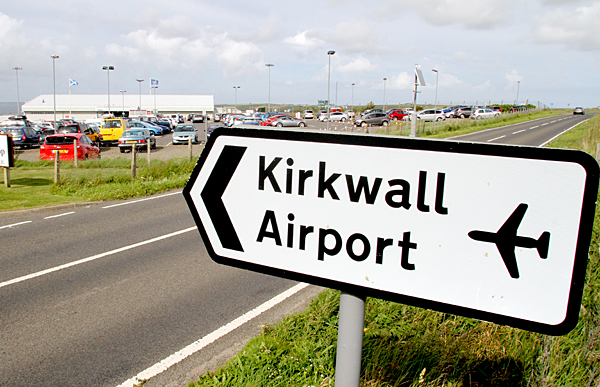Grant criticises HIAL centralisation plans in face of ATC strike announcements

An MP for the Highlands and Islands has asked why air traffic controllers with HIAL should be willing to carry on doing their jobs for less than their counterparts south when centralisation could see some of them forced to move.
Setting out the situation, MSP Rhoda Grant said: “air traffic controllers based at the HIAL airports have trained and qualified to the same standard as their peers. They have chosen to stay in the more remote, and in some cases island communities, to carry out their roles, thus enabling those from these outlying and island communities to make full use of the lifeline services they provide.
“They have decided to utilise their skills within their local communities for the benefit of all. However, they have had to put up with the knowledge that their counterparts elsewhere in the country were earning more.”
It was announced on March 1 by the Prospect Union that their members who are air traffic controllers (ATC) working for Highlands and Islands Airports Ltd (HIAL), had voted in favour of strike action over an unresolved pay dispute, the root of which is their pay falling behind those in other areas.
However the HIAL, which is owned by Scottish Government Ministers have said they must follow the Scottish Government pay policy, so cannot implement pay awards more than that directed by the government.
It was also pointed out that HIAL had previously implemented a pay rise for all staff as well as increasing contributions to their pension scheme.
Ms Grant continued: “HIAL were successful in recruiting and training young people who were willing to train in these sought after skills, looking especially for people who wanted to stay in their communities. The quid pro quo was, and both employer and employee were aware of this, that Air Traffic Controllers knew they could earn more elsewhere but were willing to relinquish that in return for having secure highly qualified jobs at home. It worked, these people could have chosen to seek the higher wages elsewhere and relinquish their home lives.

“The air traffic controllers were willing to carry on providing their essential service at these smaller airports, but as time has passed and the talk within HIAL has been about the centralisation of Air Traffic Control. What has developed is that these conscientious individuals have become demoralised in the knowledge that centralisation of Air Traffic Controllers within HIAL means that all, but those based in Inverness, will have to leave home if they want to retain their jobs. The very thing that had made the system work is being removed. Why should they accept lower wages when the quid pro quo has been removed?
“I have said before that HIAL must now review this whole strategy and reconsider how it is going to provide a valuable service to outlying and island communities taking cognisance of issues such as island proofing, their individual staff members family circumstances and commitment and the needs of their communities. If we want to retain vibrant and economically stable communities we need to retain highly qualified employees.
She concluded: “It is little wonder that these dedicated members of staff have now had enough and are holding those in charge at HIAL to account? No wonder they have been forced to go down the line of Strike action and a work to rule.”
Responding, to the Scottish Labour MSP’s statements, a HIAL spokesman has pointed out that the ballot held by the Prospect union was based purely on pay, and not over centralisation or any other matter.
The spokesman added: “HIAL looks to support employment within local communities wherever possible. As part of the ATMS programme, HIAL are exploring options to allow ATC staff to retain their base on the islands and commute to the ATC Surveillance Centre Inverness. This includes examining shift patterns to accommodate such remote working.”

